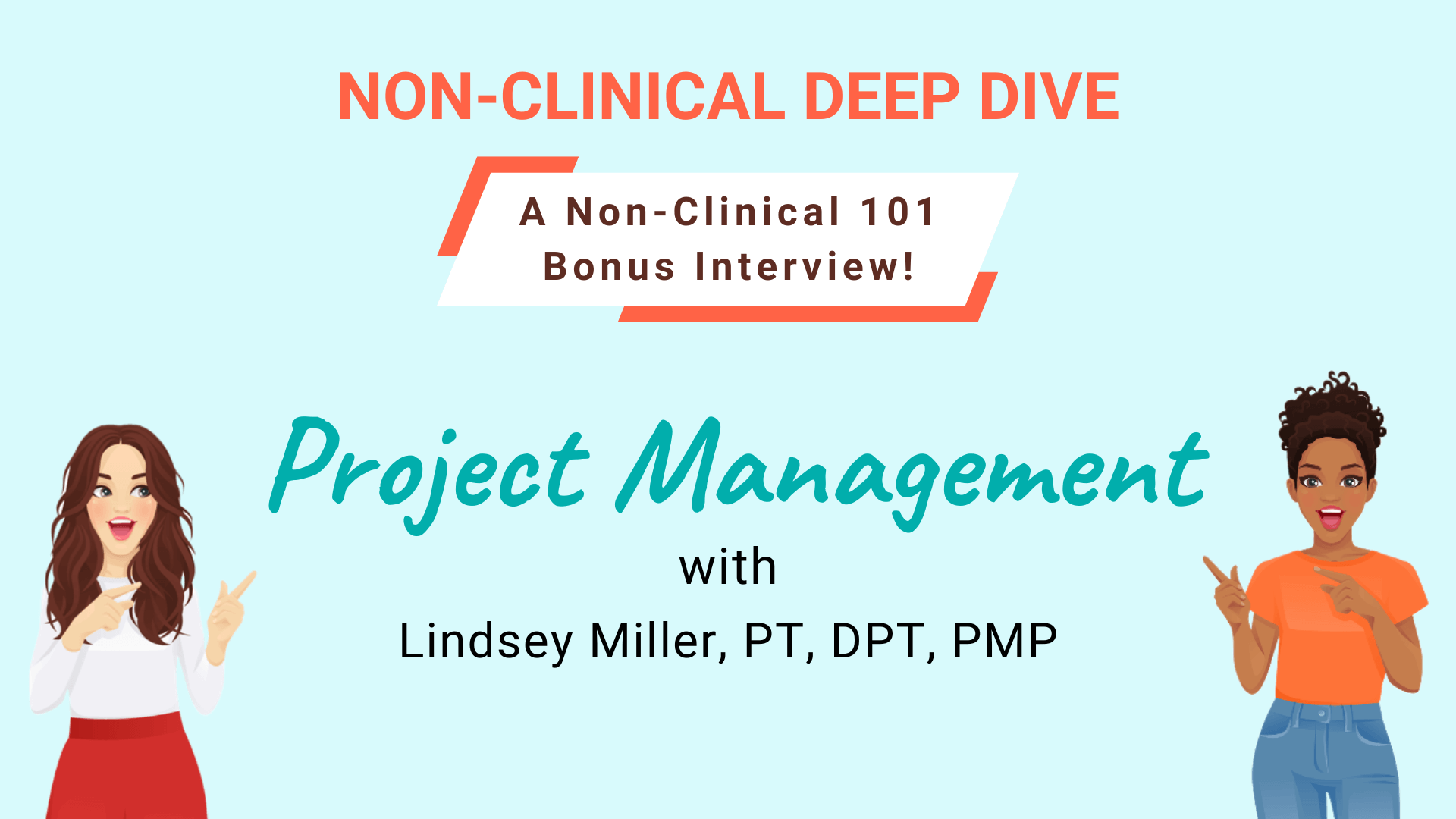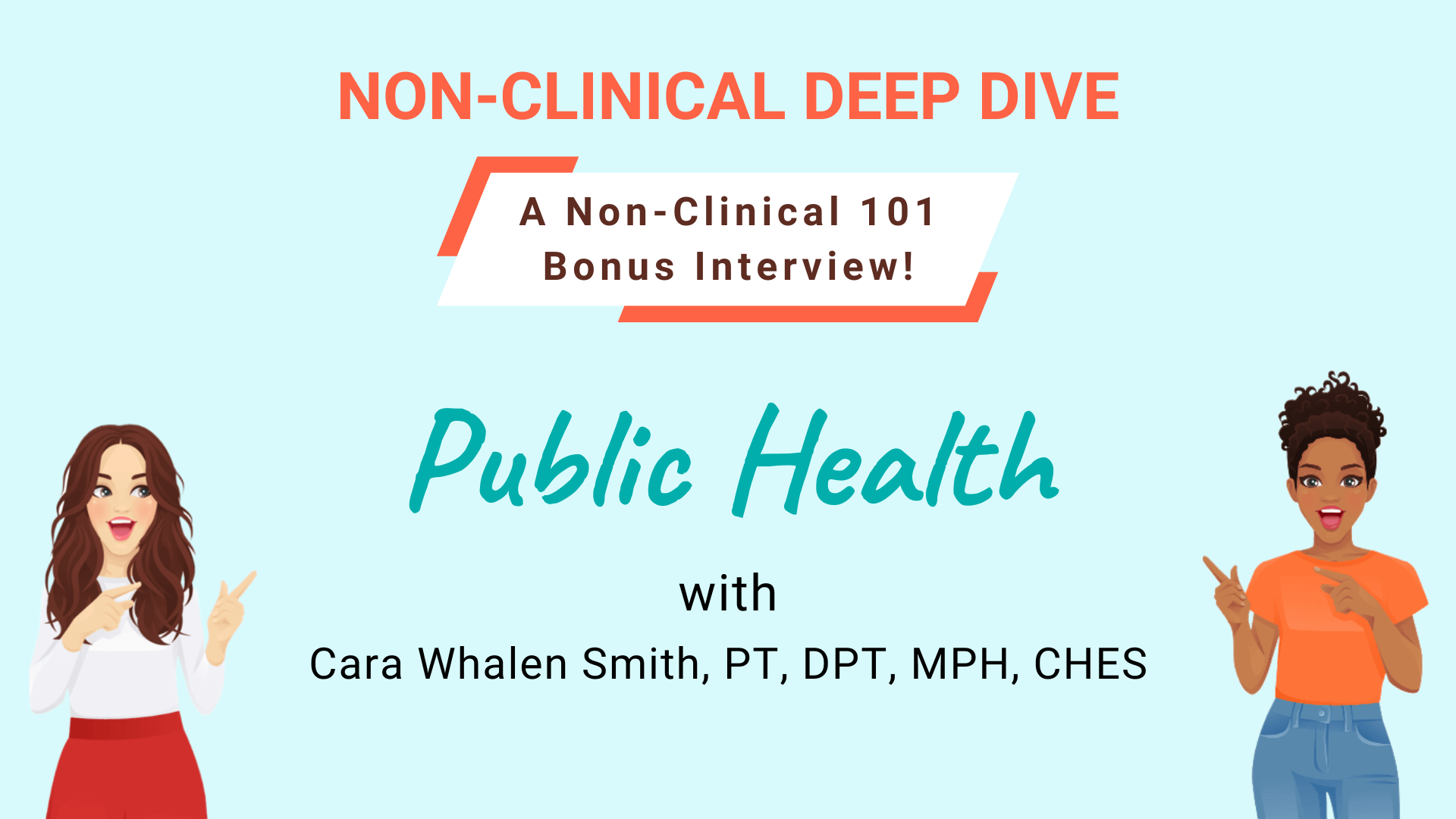We’ve been in your shoes. You’re fresh out of school, diploma in hand, and the realization sets in that clinical work might not be for you. It’s upsetting, to say the least—especially after investing time, energy, and a significant amount of money into your education. You might feel foolish for not recognizing earlier that patient care wasn’t a good fit. Worse, you could be accused of wasting a spot in your class or find yourself labeled a bad clinician.
But here’s the truth: there are LOTS of non-clinical career options for newer grads like you. In fact, it’s sometimes best to recognize early that clinical work isn’t a good fit. This doesn’t mean you’re giving up or that your time in school was a waste. Instead, it means you’re listening to yourself and making a strategic choice about your future.
This post may contain affiliate links or codes. This won’t increase your cost, but it helps keep TNCPT alive, and free of annoying ads! Thank you for your support. 🙂
The importance of upskilling
Before we jump in, we want to note that pursuing a non-clinical career path often requires upskilling—but you can view this as an opportunity, rather than a barrier. As they say, fortune favors the bold, and if you’re bold enough to build upon your existing soft skills, you’ll be ahead of the competition when it’s time to apply for jobs.
You’ve gained a number of soft skills in your clinical training, with just a few being:
- Attention to detail
- Critical thinking
- Observation
- Iterative problem solving
- Empathy
You’ll already be intriguing as a career-changer into your new chosen career path. But your job is not just to be interesting, but to show you’ve done the work to enter your new career as a prepared worker ready to hit the ground running.
That’s why we always recommend investing in some upskilling opportunities whenever possible!
Let’s explore some great non-clinical career options for new grads!
User experience (UX)
The job of a user experience (UX) professional is to make products, services, and systems more accessible, enjoyable, and useful for people. Your clinical background gives you a unique perspective on how people interact with healthcare systems, which can be a huge asset in designing more user-friendly healthcare applications and technologies. Bonus: many of these roles are remote!
Even if you have not formally worked as a clinician in a paid, licensed position, you have completed clinicals, been exposed to healthcare as a student, and generally possess industry insights beyond what a typical applicant pursuing a UX role in healthcare might have.
That said, you’ll definitely want to upskill to show that you’re ready for your first UX role. We cover much more about how to pursue this career path (and all the others we mention below) in Non-Clinical 101!
Below, you’ll find a few non-clinical spotlights on clinicians working in UX. While both Jennifer and Kate chose to make the switch after working clinically for a few years, their stories demonstrate what a great career fit this would be for a new grad.
Project management
Healthcare projects need managers who understand the clinical side of things. Your background could position you perfectly for roles that involve overseeing healthcare-related projects, ensuring they’re completed on time, within budget, and to the desired quality standards.
Keep in mind that being a newer clinician can be helpful since you’ve literally just proven that you can learn quickly and complete a rigorous educational program. But it’s usually not enough to land the job of your dreams right away.
To enter this field, you’ll need to prove that you understand the role of a project manager and can successfully do the job. An upskilling program can be helpful, as can volunteer projects and internships.
Non-Clinical 101 includes many bonus video interviews, including one with Lindsey Miller, PT, DPT, PMP, who now works in project management!

Writing
Having in-depth knowledge of healthcare topics makes you an excellent candidate for content writing positions in the healthcare space. Your work could involve anything from creating informative articles, to developing educational materials or writing about the latest research findings for any type of audience.
Content writing is not limited to newer grads. In fact, depending on the type of writing you want to do, having more or less clinical experience can be helpful.
If you’re a new grad, we recommend leveraging your recent insider knowledge of higher education, including recent exposure to cutting-edge and evidence-based practices.
Upskilling is recommended, but not required, for this career path. We definitely recommend creating a writing portfolio so you can showcase any guest posts, blogs, or other published materials you have under your belt.
Here’s a spotlight on an OT who explored several career paths before landing on writing as a good fit for her goals. She switched into writing while still considered a new grad!
Customer success
Customer success—also called client success—is one of the best options for new grads pursuing non-clinical roles. The field has emerged as a way for companies, notably tech companies, to ensure their new clients have a good experience with products and services.
In a customer success role within the healthcare space, you’ll use your clinical knowledge to help clients or patients navigate clinically related products or services.
This could involve working for healthcare technology companies, insurance firms, or health-related startups. Many new grads find it relatively easy to transition into this type of work, as they are often viewed as technically savvy and eager to learn. And the people skills gained during school can only help!
Here are two spotlights on clinicians who pursued customer success. The first landed her job right out of school, while the second got into client success not long after she entered patient care.
Public health
Public health careers can be a natural choice for newer grads seeking meaningful work without direct patient care. Public health offers the chance to work on large-scale health initiatives, from disease prevention programs to health education campaigns.
Your clinical background gives you a solid foundation in understanding health issues, which makes you a marketable addition to the team. That said, formal public health experience or a certification can be what ultimately helps you land the job.
You don’t necessarily need a master’s in public health (MPH) to enter public health. A specialized certification is often enough to get started.
Non-Clinical 101 includes bonus videos with non-clinical professionals, including Cara Whalen Smith, PT, DPT, MPH, CHES, who now works in public health!

Data analytics
Healthcare generates vast amounts of data and, if you pursue a career in data analytics, you can help organizations make sense of this information. Your work can help improve patient outcomes, streamline operations, and develop new healthcare solutions.
Data analytics is an exciting field with plenty of growth opportunities, flexibility, and options for working remotely. That said, the field requires an understanding of data analysis tools and techniques, which you can learn by taking specialized courses or bootcamps.
Here are a few spotlights on clinicians who have pivoted into data. Given that it’s a tech-oriented field, being a newer clinician can be quite helpful as you make the transition!
Research
Research is another fulfilling career path that allows you to tackle healthcare issues from another angle. The work involves investigating new treatments, healthcare policies, and/or ways to improve patient care.
This can be an especially rewarding path if you’re passionate about advancing medicine, and it’s also the type of work that you can pursue right out of school!
While it’s helpful to get hands-on experience while you’re still completing your degree, there are plenty of roles that specifically look for licensed clinicians. You can also opt to pursue advanced training in research, including a master’s degree, PhD, or even a specialized training program designed for industry-based research roles.
Consulting
Lastly, let’s discuss consulting!
Wait…consulting? Doesn’t a consultant need, you know, experience?
Yes and no. There are many positions that specifically want a consultant who recently went through school, passed a licensing exam, or have other industry insights.
It might seem like consulting requires years of experience, but there are positions that value recent graduates. Fresh out of school, you bring up-to-date knowledge, a fresh perspective, and a keen understanding of the latest industry trends and technologies.
Here’s a spotlight on a woman who went directly into research, then into consulting, right after graduation from PT school! She has since moved on to a role in leadership at her local Alzheimer’s association, too!
Making the transition
Changing careers right when you’re finishing your clinical education can feel intimidating. Just when you feel like it’s time to reap the rewards of all your hard work, you might feel a little overwhelmed by the concept of starting over.
Keep in mind that you won’t be fully starting over when you pursue the aforementioned paths, though!
Here are a few steps to consider when transitioning to a non-clinical career when you’re fresh out of school:
- Self-assessment: Take stock of your skills, interests, and values. What aspects of your clinical training did you enjoy? What skills do you have that are transferable to a non-clinical role? We provide multiple skills assessments as part of our Non-Clinical 101 curriculum!
- Upskilling: Identify any gaps in your skill set and look for ways to address them. This might involve taking online courses, attending workshops, or pursuing further education. Each of the 27 non-clinical career paths we explore in Non-Clinical 101 provides upskilling and educational recommendations.
- Volunteer or freelance work: Gaining experience in your new field might start with volunteering or freelance projects. These opportunities not only bolster your resume but also give you a better sense of whether a particular career path is right for you.
- Networking: Connect with professionals in your desired field. LinkedIn, professional associations, and networking events are great places to start. Don’t underestimate the power of informational interviews to gain insights into different careers. NC101 provides specific networking groups and opportunities whenever possible for each of the 27 career paths covered in the course!
- Personal branding: Update your resume, LinkedIn profile, and other professional materials to reflect your transferable skills and non-clinical career interests. Highlighting projects or coursework relevant to your desired field can be particularly effective. We have a TON of branding-related content included in the NC101 course.
Conclusion
It’s very possible to launch a non-clinical career as a new grad! With the right mindset, preparation, and strategy, you can find a fulfilling career path that leverages your unique skills and experiences. Remember, pivoting to a non-clinical role right out of school doesn’t mean you are a failure or a fool. Instead, it’s a way to acknowledge and honor the fact that we all grow and evolve over time, and you’re choosing to take a forward-thinking approach instead of wallowing in fear because you don’t believe you have the skills to do something else.
Believe in yourself! You can always go back to patient care, so you might as well harness the energy and momentum you have while you’re still a new grad.
You have a world of opportunities at your fingertips!





